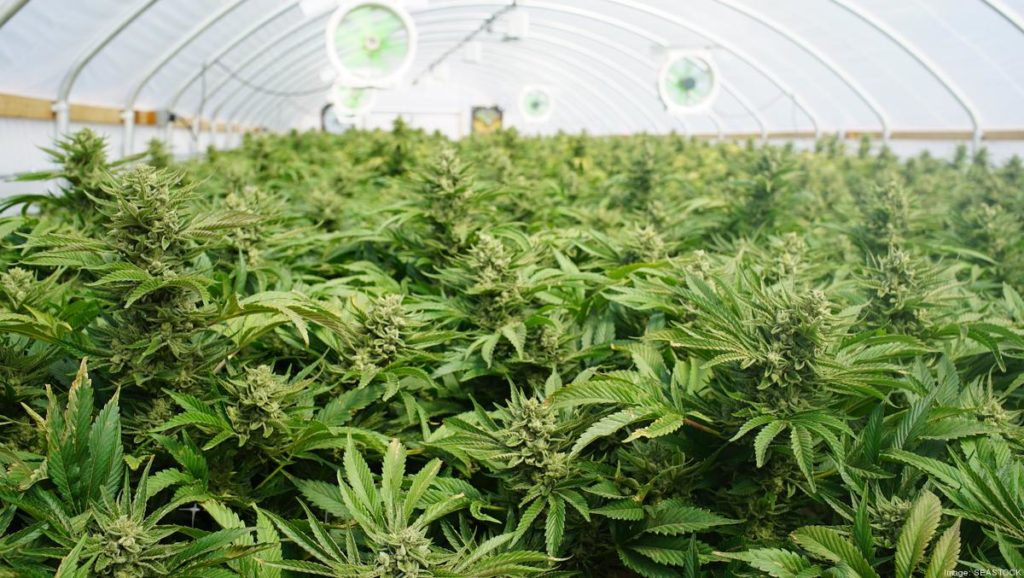BizJournals
When first given the green light to grow cannabis in April, Western New York’s first legal cultivators had one major question: Would a retail market be ready for their crops once harvested?
That concern has never been more valid, now that those cultivators will have to look to other regions of the state to sell their product.
A judge granted a temporary injunction on Nov. 10 that stopped adult-use retail dispensaries in five regions named in a lawsuit out of Michigan. According to a motion filed by the state, the injunction prevented the opening of 63 dispensaries in those five regions, 11 of which were anticipated in Western New York.
Without local dispensaries, the cultivators here are left to find other ways to sell their products. The state argued in its motion filed Nov. 22, that many of the cultivators are family farms that invested a lot to enter the industry.
“Their inability to get their harvest to market could significantly impact their financial solvency,” Herb Barbot, director of operations for the Office of Cannabis Management wrote in the motion.
They’ll have to start forming relationships with dispensaries in other parts of the state, which could be difficult to do as many have been planning partnerships for months.
Attorney Mary-Jane Morley, an associate at Phillips Lytle whose practice includes clients in hemp and cannabis industries, said Western New York has a tight-knit cannabis community, where people tend to have a local focus when it comes to partnerships and networking.“It will probably be a challenge to find other places to sell the product when you’ve already had people in your region that you’ve been networking with,” she said.
Morley said the five regions hindered by the lawsuit have produced a crop that’s valued around $1.5 billion. Neither the cannabis producers nor the state want it to go to waste.
“I don’t think the irony has been lost on anyone—that cannabis is federally illegal and can’t be a part of interstate commerce,” she said. “It’s frustrating, especially since it’s an attack on the CAURD program and these are the people who were harmed the most by the enforcement of previous marijuana laws.”
The lawsuit was filed earlier this month by Michigan applicant, Kenneth Gay, majority owner of Variscite New York One, Inc. In it he claims the OCM’s New York residency requirements for the new adult-use dispensary market violate constitutional rights for interstate commerce.
The state approved the first 36 Conditional Adult-Use Retail Dispensary (CAURD) licenses at its Nov. 21 meeting, none were in Western New York, Finger Lakes, Central New York, the mid-Hudson region or Brooklyn.
Finding sales outside the region can be a challenge for those who have mapped out seed-to-sale tracking compliance plans. It also adds costs to the cultivators, as they’ll have to travel farther to sell their marijuana.
“For example, a farmer in Western New York will need to travel approximately three hours to the closest dispensary, and another hour on top of that to reach a dispensary in a larger consumer market like Albany,” Barbot wrote in the motion.
The state argued that since the Finger Lakes was Variscite’s first choice in location, and that there were more than enough applicants to fill the needed dispensaries in the 13 dedicated regions, the injunction should be narrowed to just the Finger Lakes.
The motion argues that had Variscite met the residency requirement, the Finger Lakes would have been the only potentially approved dispensary. Therefore, the other four regions, which collectively have 121 cultivators and 16 processors, should not be included in the injunction.
If the judge doesn’t remove this region from the injunction, the delay will put weed retailers in Western New York “behind the eight ball,” said Patrick Hines, partner and leader of the cannabis practice at Hodgson Russ.
Morley and Hines said they doubted the case would be resolved by the end of the year, which means Western New York might be waiting until 2023 for its first legal pot dispensary.
“I don’t think a temporary delay is going to evaporate that sense of pride or people wanting to invest in local businesses,” he said. “But if this is upheld, ultimately, the state is going to have to revamp what it’s doing to give the little guys a seat at the table.”
As for the cultivators?
“If they can’t sell the product they’ve been growing, they need to effectively preserve it,” Hines said. “Losing some of that product is one of the risks that the state argued in opposing the injunction.”
H/T: www.bizjournals.com



